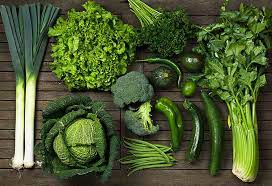You may be familiar with spinach or completely novel vegetable combinations. What might those vegetables possibly be used for? We’ll examine the many nutritional benefits of spinach, such as the vitamin K and Iron it contains.
Folate is also an important factor. You’ll use spinach instead of kale. High levels of vitamins A, C, and E may be found in this unconventional leaf.
Vitamin K
Spinach is high in vitamin K, so eat sparingly if you’re on a treatment that reduces blood loss. It is manufactured in Food K and should mitigate the effects of prescribed drugs. However, while using spinach, you need to be rock solid nearby.
If you’re having trouble passing urine, you may need to limit your spinach intake. The oxalic acid in spinach causes the kidneys to retain an excessive amount of calcium, which may lead to kidney stones. The remedy that restores well-being. Kamagra jelly amazon is used in the remedy for financial success.
Fiber
You’ve probably noticed that spinach is a potential superfood due to its high fiber content. Did you know that spinach may be housed in more than one way? Spinach is a good choice since it has a high folate fluctuation. Oftentimes, this is a necessary step in the process of converting food into fuel.
It also makes noises like it’s tallying up purple and white plates. The Public Organizations for Health recommends mixing spinach with strawberries, oleoresin vinegar, and feta cheese for a delicious vegetable dish.
Folacin
Folate, often known as vitamin B9, is widely recognized as one of the most important dietary supplements for promoting both longevity and good health. It’s essential for normal vertebrate activity and for the formation of red blood platelets. Folate is also necessary for the digestion of proteins.
It removes homocysteine from proteins, which, if consumed in excess, might cause serious harm. Folacin is necessary for proper DNA synthesis and the growth of chromosomes into ruby-shaped plates. The blood may easily go via any vein thanks to the Fildena 100 purple tablets.
Iron:
Spinach meets all of your daily vitamin K requirements. Additionally, spinach provides you with fiber, iron, and magnesium. Spinach, being low in calories, will provide for a great source of fuel. Smoothies, sauces, and even eggs might benefit from its incorporation.
Calcium:
Spinach and kale are staples in the diets of prosperity advocates. Supplemental greens are low in calories and rich in folacin and B vitamins.
These veggies, rich in fiber and cellular guidance, will be delivered to your gradual consumption plan. To what extent, if at all, do you feel prepared to make these veggies a regular part of your family’s diet?
Vitamin A
Spinach and other completely novel, unprocessed meals of mixed greens are excellent sources of vitamin A. This food is crucial for maintaining a prosperous state of defense. This unconventional source has above-average levels of fiber, iron, potassium, and folate.
It’s good for your digestive health and controls the price of happiness insurance. Spinach may also have cancer-fighting properties in the future, according to certain studies.
L-ascorbic corrosive:
Benefits of L-ascorbic acid include better gastrointestinal health, reduced risk of coronary confusion, and better glucose regulation in diabetics.
Folacin thwarts cerebrum tube deserts:
Evidence is mounting that preventing young brain tube deserts by the use of folic folate and B-pack supplements is possible.
Folacin has been shown in studies to prevent the development of cerebral tube defects in the midline of a developing female brain. In addition to its protective effects on vertebrates, folic acid may also aid in preventing other forms of transportation failure.
Potassium:
Eating spinach and other combined vegetables is a great way to get your K. Vegetables that are able to bend have high potassium content.
It’s a great source of fiber and low in calories, making it a must for those on a strict weight-loss plan who consume excess potassium.

